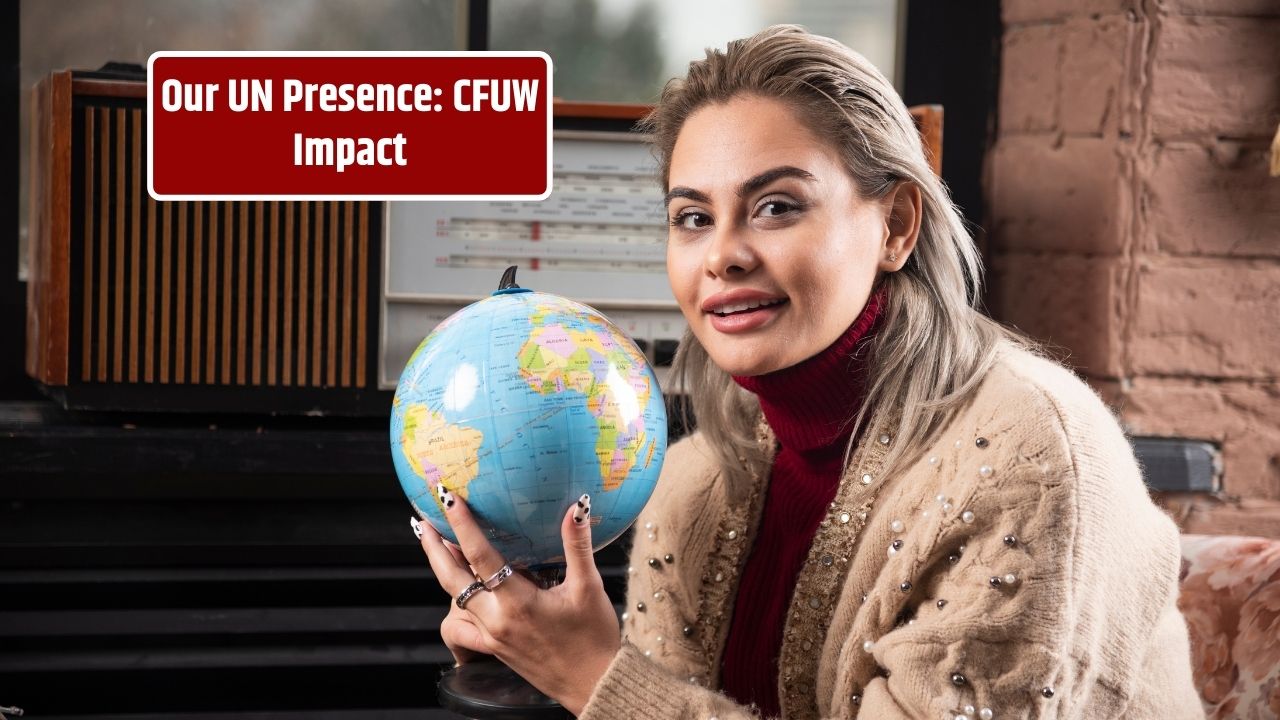Not everyone realizes it, but the Canadian Federation of University Women (CFUW) isn’t just a national organization—it has a seat at the global table.
Through its special consultative status with the United Nations Economic and Social Council (ECOSOC), CFUW brings the voices of Canadian women into international policy spaces where decisions are made on education, gender equality, climate change, and human rights. For members, this global presence is both a point of pride and a reminder that their advocacy reaches far beyond local club meetings.
What Does CFUW Do at the UN?
Having ECOSOC status means CFUW can:
- Submit written statements and recommendations on issues affecting women and girls.
- Participate in major UN conferences, such as the Commission on the Status of Women (CSW).
- Partner with global NGOs and women’s groups to strengthen advocacy efforts.
It’s not just symbolic. CFUW uses its position to highlight Canadian perspectives on everything from universal education access to ending violence against women, while also amplifying international best practices back home.
The Commission on the Status of Women (CSW)
One of the most visible ways CFUW engages at the UN is through annual participation in CSW sessions in New York. Members, often alongside Graduate Women International (GWI), attend panels, deliver interventions, and network with leaders from across the globe.
For CFUW delegates, the experience is transformative: they return not only inspired but also equipped with new strategies to advance gender equity in Canada.
A Bridge Between Local and Global
What makes CFUW unique is how it connects grassroots members to global advocacy. For instance:
- A club in Ottawa may work on local education initiatives.
- That work is fed into CFUW’s national reports.
- Those reports influence CFUW’s submissions to the UN.
The chain of impact is real: what happens in a local club can shape conversations at international policy tables.
Partnerships and Coalitions
Through its UN work, CFUW also collaborates with a network of NGOs pushing for change on issues like climate justice, reproductive rights, and Indigenous women’s rights. These partnerships amplify CFUW’s reach while keeping it connected to broader feminist movements worldwide.
Why This Global Presence Matters
For members, CFUW’s UN status underscores that their efforts matter on a larger stage. It demonstrates that women’s voices—from Canadian towns and cities—are part of shaping the global agenda on equality and human rights. In an era where international collaboration is essential, CFUW’s seat at the UN ensures that Canadian women are never left out of the conversation.
FAQs
What is ECOSOC status, and why is it important?
It allows NGOs like CFUW to formally engage with the UN, submit statements, and participate in global policy discussions.
Does CFUW attend UN meetings every year?
Yes, particularly the Commission on the Status of Women, where CFUW members often serve as delegates.
How do local members contribute to UN advocacy?
Through local initiatives, resolutions, and research that inform CFUW’s submissions and reports.




